Last December, I blogged about the extraordinary discovery of hundreds of well-preserved artifacts from the daily life of the Bronze Age residents of what is today the Must Farm Quarry in Whittlesey, southeast England. Hundreds of 3,000-year-old artifacts were found, among them textiles, swords, eel traps, spear tips, tools, a charred platform bridge and bowls of nettle stew, nettle stew still within. It’s the largest Bronze Age find ever made in Britain.
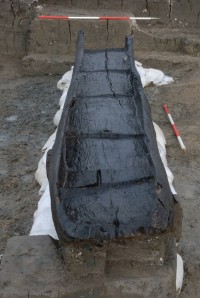 The most astonishing discoveries were six log boats dug out of oak and ash trunks. Finding an entire wooden boat from the Bronze Age is rare but not unheard of; finding six seemed nigh on miraculous. Now that already exceptional number has increased to eight and the team from Cambridge Archaeological Unit is still excavating.
The most astonishing discoveries were six log boats dug out of oak and ash trunks. Finding an entire wooden boat from the Bronze Age is rare but not unheard of; finding six seemed nigh on miraculous. Now that already exceptional number has increased to eight and the team from Cambridge Archaeological Unit is still excavating.
It’s the unique geology of the Cambridgeshire fens that has kept this slice of Bronze Age life preserved 13 feet below ground level. If it hadn’t been for brick-making company Hanson which owns the quarry and mines its Jurassic clay to make their bricks, it’s unlikely that anybody would have dug so deep to find a 3000-year-old fishing village virtually frozen in time. Laudably, the company is funding the archaeological exploration and has promised to continue to do so.
When I first posted about this spectacular find, there were only a couple of small pictures in news stories and it was a huge bummer for me and everyone reading. Two days later, Cambridge Archaeological Unit photographer Dave Webb posted a comment to the entry with a link to a bunch of great pictures, particularly of those spectacular dugout canoes. I edited the link into the entry, but I think most people missed that the first time.
Now I’m making up for it and then some. Past Horizons has posted a second set of David Webb’s pictures, these focusing on some of the other artifacts, like a bronze sickle or bill hook, spear heads, some textiles and the bowl of stew. They also have a composite picture showing one of the excavation areas (the one with the collapsed platform) peppered with artifacts.
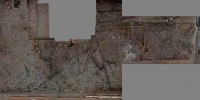
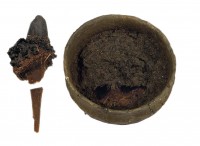
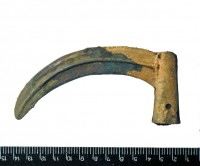
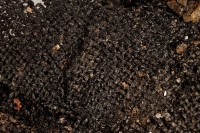
I also found a fascinating description of a visit to the Must Farm site by Sheridan Kirby of the Fenland Witters blog. You can see more of the pictures from that visit on her Flickr stream. Joan Munns was with her on the tour. Her pictures start here (click the “Older” right arrow button to browse through the rest) and here’s a video of their visit so we can live vicariously through them:
[youtube=http://www.youtube.com/watch?v=TuDIrG08ORA&w=430]